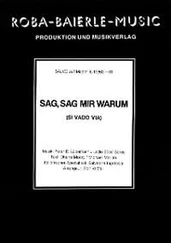Summers we branched out in our measly fashion. Freed from the dress code, what did we do? As fake twins, we couldn't shake our love of the uniform. Each day we wore the same make of shirt, but different colors, different iron-on decals. Every couple of months our mother bought us some clothes at Gimbels — security cameras capture her foraging for her cubs, murmuring “Two of these, and two of these”—and then tossed them into our cage for us to hyena-yip over who got what. Want the maroon terry-cloth shirt? Get to it first or else you'll be wearing the olive one 'til next Christmas. R2-D2 jammies for you, C-3PO for me. You had to work fast. Dibs was all.
We were a bit of a genre when you pried open a family photo album: There's Benji 'n' Reggie slouching in the beach grass, leaning on the hood of that summer's rented car, huddled on a bench outside the ice-cream parlor. One brother in a powder-blue Izod polo, the other in a crimson Izod drizzled with Rocky Road. Arms noosed around each other's necks, always wearing the same shirts but for that one crucial, differentiating detail that was everything. The same, but a little off, and it was to that crooked little corner of difference that we truly aspired.
Our expressions, picture to picture? Me: pained and dyspeptic, squinting in discomfort at the discovery of some new defect in the design of the world, the thought bubble asking, “Aren't we all just ants under the magnifying glass, really?” and “Is this the passing of our days, so much Pixy Stix dust falling in an hourglass?” The only time “early bloomer” has ever been applied to me is vis-à-vis my premature apprehension of the deep dread-of-existence thing. In all other cases, I plod and tromp along. My knuckles? Well dragged.
Say Cheese. And what's Reggie up to? Mugging, of course, cross-eyed, sneering, fingers bent into devil's horns, waving his dented beggar's cup for one extra ounce of precious attention, a rare element in our household. We knew we wanted to be separated but could only bear it in slim degrees. So when our father showed up with knockoff souvenirs from the 1976 Montreal Olympics, I snagged the javelin T-shirt, Reggie reached for the shot-put T-shirt, and we broke out of the locker-room tunnel into the arena of sunlight, summer after summer, members of the same team. It was nice to have a team, even if it was just us two.
Where is the surgeon gifted enough to undertake this risky operation, separate these hapless conjoined? Paging Doc Puberty, arms scrubbed, smocked to the hilt, smacking the nurses on the ass, and well-versed in all the latest techniques. More suction! Javelin and shot put — that's about right. Hormones sent me up and airborne, tall and skinny, a knock-kneed little reed, while Reggie, always chubby in the cheeks and arms, bulged out into something round and pinch-able, soft and smooth, where I stuck out in sharp angles. We disentangled week by week, one new hair at a time. Junior high, they called it.
There were no complications on the physical separation, but what about the mental one, to sever the phantom connection whereby if Reggie stubbed his toe, I cried out in pain, and vice versa? The moment of my psychic release was occasioned by Liza Finkelstein's eighth-grade roller-disco party in the spring of '83.
IT WAS BAR MITZVAH SEASON, a good time to be alive by any measure, but particularly for die-hard finger-food aficionados like myself. As my friends underwent their time-honored initiation rituals, I experienced my own coming-of-age, culinary-wise. I had led a rather sheltered life with regards to bite-sized snacks, having only messed around with Mini Hot Dogs, La Choy Egg Rolls, and other lovelies of the Preheat To 350 school. The racy, catered pleasures of the full-tilt, bank-busting, don't-you-love-me bar mitzvah were a revelation. I remember marveling at the silver hors d'oeuvres trays as they dipped and flitted through the air like flying saucers out of a '50s sci-fi movie, bearing alien life forms I had never reckoned, messengers of gustatory peace and goodwill. Chicken teriyaki on skewers, Swedish meatballs squatting in brown pools, all manner of dipping sauces in dark and gluey abundance — it was dizzying, and that wasn't just the thimbles of Manischewitz talking.
I was used to being the only black kid in the room — I was only there because I had met these assorted Abes and Sarahs and Dannys in a Manhattan private school, after all — but there was something instructive about being the only black kid at a bar mitzvah. Every bar or bat mitzvah should have at least one black kid with a yarmulke hovering on his Afro — it's a nice visual joke, let's just get that out of the way, but more important it trains the kid in question to determine when people in the corner of his eye are talking about him and when they are not, a useful skill in later life when sorting out bona-fide persecution from perceived persecution, the this-is-actually-happening from the mere paranoid manifestation. “Who's that?” “Whisper whisper a friend of Andy's from school.” “So regal and composed — he looks like a young Sidney Poitier.” “Whisper whisper or the son of an African diplomat!”
Eventually I'd have some company when the occasional R&B band showed up to drag themselves through the obligatory Motown retrospective, with the inevitable “Super Freak” thrown in… as Liza Finkelstein, grim and silent, squashed her place setting in her fist and cursed us all. Her parents were civil rights lawyers, not that I knew what that meant, except that it compelled Liza to blurt out “My parents were there!” on that one day a year when a teacher mentioned the March on Washington. Her parents respected all races, colors, and creeds, unless that creed was their own. According to some lefty calculus they had concluded that the traditions of their faith were bogus, and consequently Liza was going to have to wait a while before entering the world of calligraphic invitations and their little guppy RSVP envelopes.
Rebellion trickles down. Liza's “My parents were there!”s diminished in enthusiasm year by year, to be true, but I think it was bat mitzvah season, with its exuberant pageantry and lovely haul of presents, that puckered her to new pouty extremes. To be so exiled. It came to pass that one bright spring morning our hippie English teacher Mr. Johnson mentioned the March on Washington and the assembled of Homeroom 8B instinctively turned to Liza to hear her declaration for the last time. Perhaps we were feeling sentimental. We'd be in high school in a few months, split up after being together — some of us — since pre-K. This was a milestone, and we waited for Liza to give us what we needed. The moments piled up. A suspicion or fear that Liza might not provide her necessary service began to creep across the room in the same way that, gently, menthol cigarette smoke crept from under the door of the teachers' lounge. My eyes fell to her checkered New Wave knee-high socks, and I thought, Liza's not New Wave. Then she sneered a “My parents were there,” rolling her eyes and kicking her feet out into the aisle between desks. Liza didn't need the whole bat mitzvah treatment. She was a teenager in that moment.
The Finkelsteins negotiated a settlement whereby the older generation would shell out for a roller-disco party of secular design and execution, and the younger generation would cut down on her use of the phrase “But all my friends” by at least 50 percent. Usually other people's parents scared me, but Mr. Finkelstein always seemed glad to have me around. Sending their daughter to a fancy private school was a betrayal of core values, paying tuition when you were supposed to support local public schools being in traitorous equivalence with eating grapes when you were supposed to boycott grapes. Those days, every nonunionized grape was a tear squeezed out of the eye of a migrant worker's child.
Читать дальше












